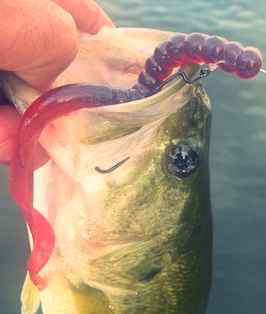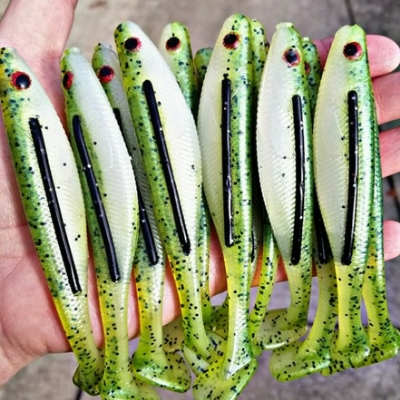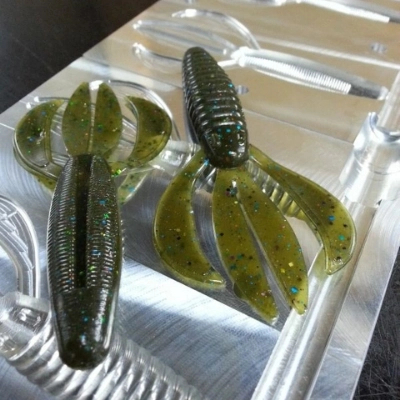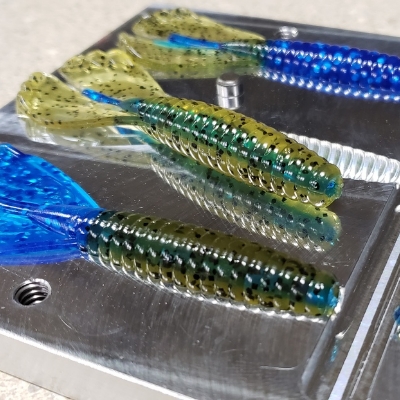Not To Be Forgotten-- The Curl Tail Worm
By Angling Ai on 10th Jan 2024
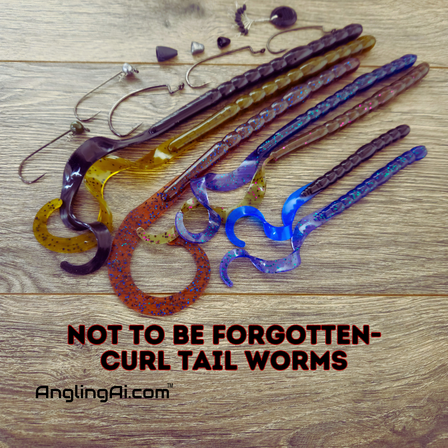
Not To Be Forgotten - The Curl Tail Worm
Curl tail worm fishing has been one of the great approaches to catching bass for years. The technique is great for navigating deep structure and cover and gives the fish a new target to look at. So many anglers are fishing jigs, crankbaits, and other new products on the market that the tried and trusted worm is still great for targeting large bass, but often forgotten. Anglers can fish these bigger curl-tail worms to move lots of water and focus on brush piles, stumps, laydowns, channel changes, rocks, or even ledges. When the bite becomes lethargic the subtle tail action of the curl-tail worm can become an irresistible meal.
Choosing the right color:
Worm Fishing often presents you with low-light situations. Darker colors will be more effective in areas of low light penetration. Utilizing purples, browns, reds, black, green pumpkin, and darker variation colors like blue fleck, june bug, red bug, plum, and black and blue will help provide a good contrast for fish to get a visual on their target. Choosing a color you have confidence in is never bad but remember to take water clarity and structure into account.
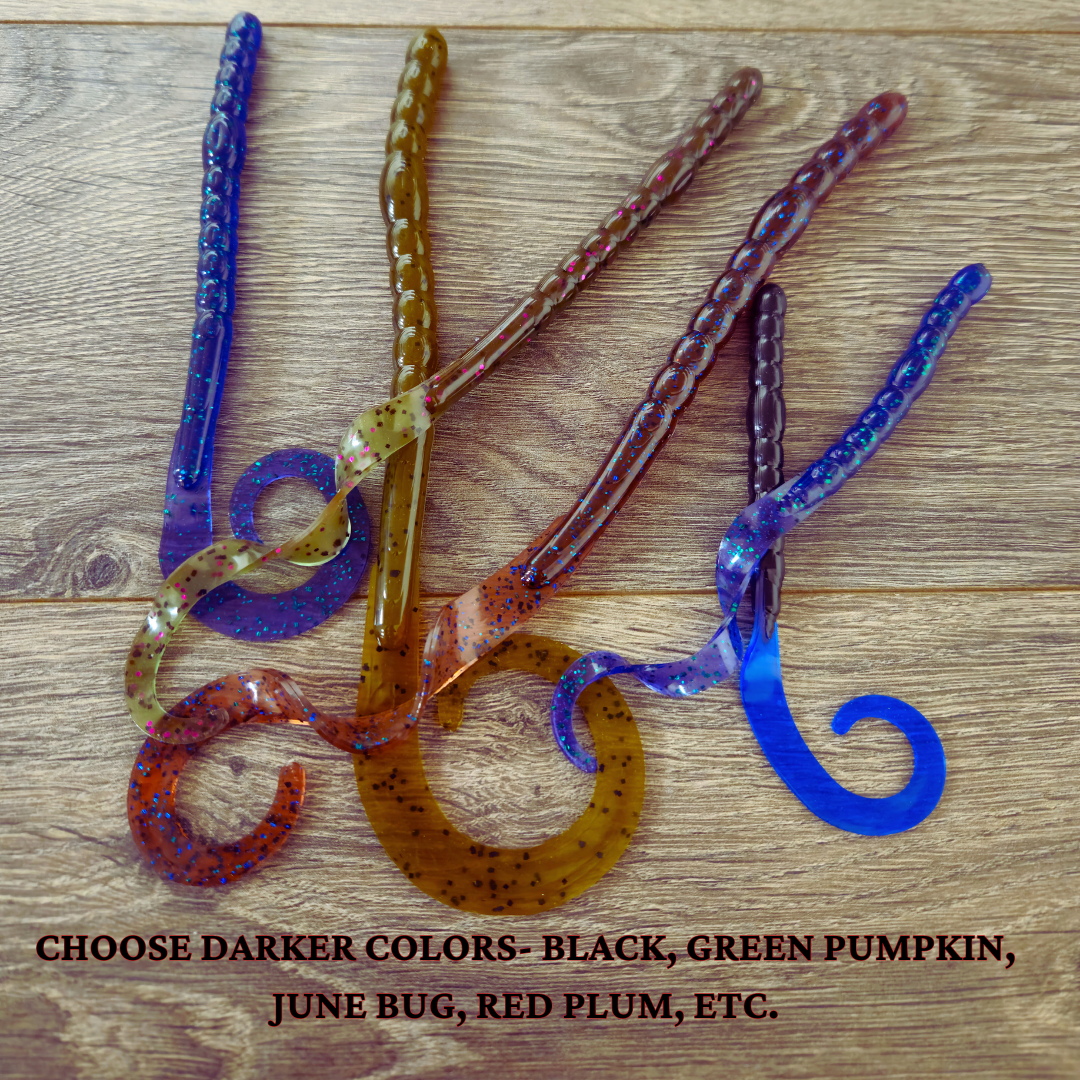
Rigging Technique:
When rigging curl-tail worms you should consider the type of structure and vegetation you are fishing, the depth, and the speed of the fall you want to present. The size of your hook should also match the worm size you are fishing. When using larger worms increase the hook size to help avoid short strikes. Some anglers will use 10/0 or 11/0 worm hooks when using 12-inch worms. In heavy cover pegging the weight will help avoid hangups and increase the feel, and it is great for flipping over hanging cover easier. When fishing deeper points or areas with rocky structures using techniques like the Carolina rig or the shaky head will help you keep the bait in contact with the bottom and help add action to the worm. When fishing the curl tail worm you can hop, drag, pause, and repeat. Rigging the worm with the tail up will maximize the action of your tail, and if the cover is not thick and heavy unpegging the weight of your Texas rig will add action when popping the worm back during retrieval. The versatility of the curl-tail worm will help you entice the big bite you are looking for.
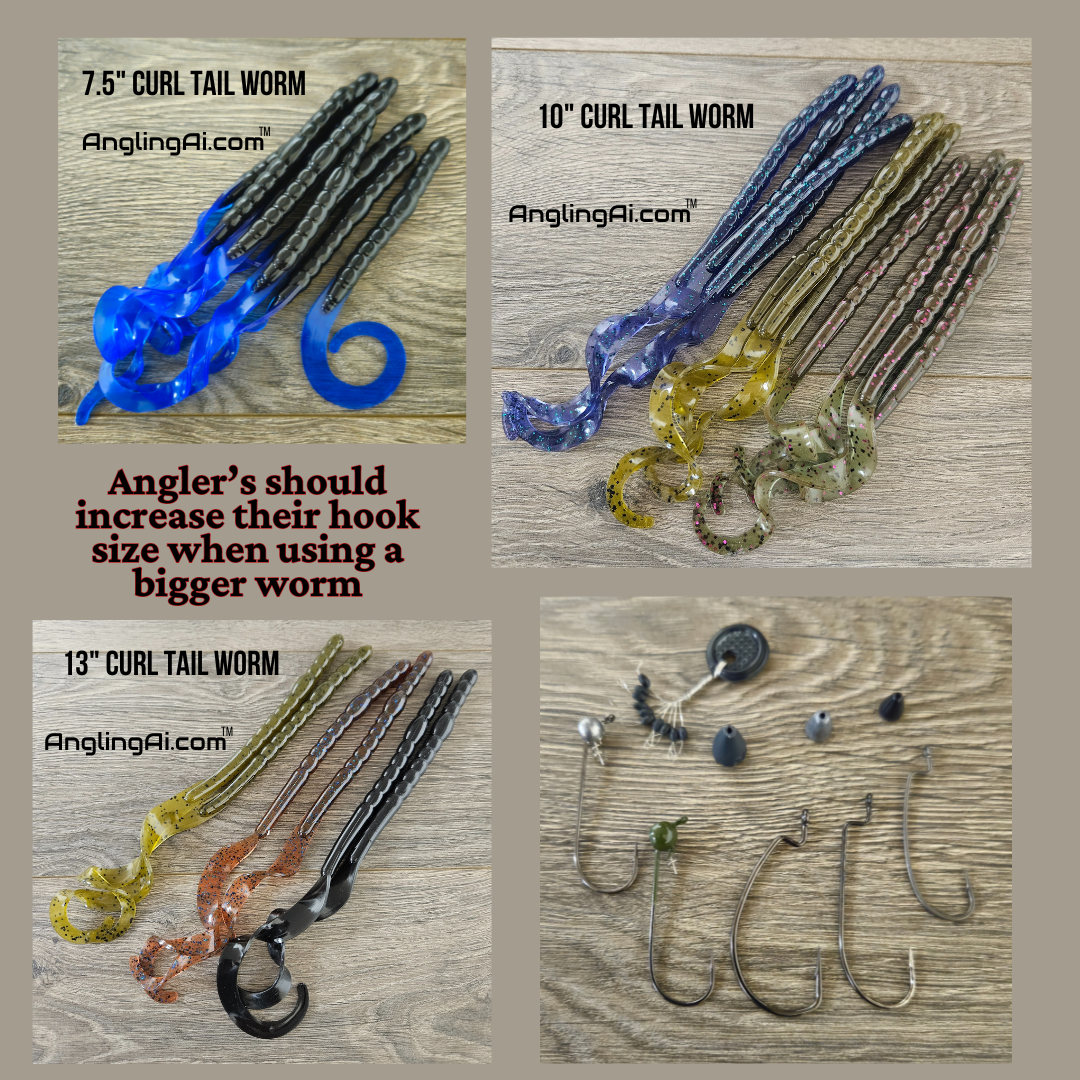
Equipment Selection-Rods, Reels, and Line:
-
Rods: Selecting a rod to use for curl-tail worm fishing is based on a couple of factors. Consider the type of cover and the size of the worm you are fishing. A heavy-duty jig rod or light-duty flipping stick is often preferred. If fishing areas of less cover a 7’ to 7’3” inch rod with medium heavy action and a faster tip makes a great choice. When fishing heavier cover or larger magnum-size worms you will want a bigger heavier rod. Use a 7’3”-7’6” rod in a medium heavy to heavy action with a fast taper. The heavier rod will assist in directing the fish out of cover when needed and be a more appropriate choice.
-
Reels: Casting reels with higher speed retrieves are useful. The high-speed retrieve will quickly take in a slack line and allow for a more powerful hook set. You will also use high-speed retrieval to direct and remove fish from heavy cover. Using a reel with a 7.1 gear ratio or higher is desired. A 200 reel size is preferred especially if selecting a larger pound test line to accommodate the bigger line diameter.
-
Line: Choosing a line that is abrasion-resistant, sensitive, and virtually invisible underwater is best. Selecting a fluorocarbon line is usually preferred when fishing curl-tail worms. The pound test selection is dependent on the amount of cover and structure you are fishing, but a 12- to 20-lb test with 100% fluorocarbon line is sufficient. The low stretch property of the fluorocarbon line will also help create a better hook set.
